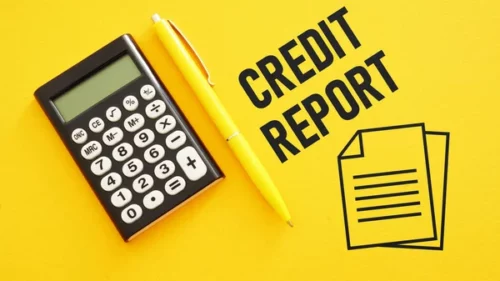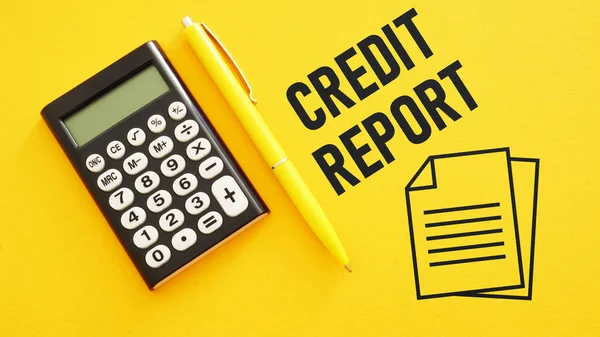Nearly 150 million people in the US invest in the stock markets. They open trading accounts and make several transactions in them every day.
But do stocks affect your credit score? We checked out what impacts FICO reporting, and below is the answer.
Do Stocks Affect Your Credit Score?
No, stock market investments typically do not appear on credit scores. So it doesn’t affect your credit score.
Neither does any other transaction on your bank account. Usually, buying and selling shares through a brokerage is never even reported to the credit bureaus.
Unless these trades impact your ability to pay back loans or mortgages, lenders are not concerned with them.

The only scenario where investments could end up on a credit report is if the debt obligation on a margin account remains unfulfilled.
We explain this last part in the next section.
Moreover, the article will also deal with the factors that impact credit reporting and how to improve them.
When Buying Stocks Could Affect Your Credit Score
A margin account with a line of credit might impact your credit score indirectly if the borrowed amount remains unpaid.
To understand this, let us first talk about margin trading.
It is a form of investing where shares are sold on loan from your brokerage firm.
The idea is to sell stock at a high price, then buy them back when they fall and make a profit.
It is considered a risky strategy because if the security prices start to rise, the trader could potentially face limitless losses.
To cover this possibility, the broker asks such investors to keep a certain amount of money as a deposit with them.
However, the losses could sometimes suddenly go so high that the collateral cannot cover them.
When this happens, the firm will ask the investor to deposit additional funds.
If they do not comply, some of their holdings might be sold to repay the debt.
However, if the losses are too high even after this, they may sell such a loan to a collection agency.
They, in turn, might enter the details of the transaction in credit reports.
This is an extremely rare occurrence, but it has been known to happen.
It is the only scenario when an investment account might end up impacting your score.
Does Opening an Investment Account Affect My Credit Score?
No, most investment accounts are never reported to the agencies at all.
Moreover, opening a new one does not involve any sort of credit checks either.

As long as stock investments do not impact the ability to service other debts, the credit history is not impacted by them.
However, if too much trading ties up funds and causes a miss on credit card payments, this could indirectly hurt your reports.
5 Things That Affect Your Credit Score
A good credit score is dependent on five basic parameters.
These might vary in weightage between different scoring systems, such as FICO or Vanguard.
However, the factors remain common in either. We have listed them below.
Payment History
Clearly, making regular debt repayments is the most important thing impacting your score.
It shows potential lenders that the individual is trustworthy.
It also signals an understanding of how the system works and the capability of using it responsibly.

Whether it be credit card debt, student loan, auto loan, or housing mortgage, consistent payments are key.
Not doing this can have a huge negative impact on your credit score.
Lastly, having a margin account reported to the bureau with a large outstanding debt can also be very bad.
Credit Utilization Rate
The utilization ratio is the sum total of the balance used as a percentage of the available credit limit across all cards.
For example, let us say there are two cards, one with a $1,000 limit and another with a $500 one.
If the usage on the first one is $350 and the second is $400, the Credit utilization rate will be given by:
($350 + $400)/($1000 + $500) = 50%
A higher than 30% value for this number is generally considered bad for the credit score.
On the other hand, keeping the ratio low can help to quickly and significantly improve it.
There is a catch in this.
Card issuers normally report customer balances near the end of the billing cycle but not after the due date.
When it happens depends on the bank, and it can vary each time as well.
Therefore, even if the amount is paid before it is due, the utilization ratio might still be high.
Waiting till the end of the cycle to pay the entire sum could lower your score.
Hence, it is best to keep clearing credit card balances.
An easy way to do this is to create a personal threshold or goal lower than 30% of the total limit available.
This way, when the figure is breached, the cardholder can pay off the amount and always have a healthy utilization rate.
Length of Credit History
How long each card is held is another significant parameter in your credit report.
The FICO scoring model considers two things: the age of the oldest and newest credit accounts and the average duration held across all of them.
The higher these numbers are, the better it is for your score.

This is why it is best not to close older credit cards even though they may not be useful to you now.
Those looking to improve their score should consider continuing them while keeping as low a balance as possible.
This will positively influence both credit utilization rate and history.
Credit Mix
Another key factor is the mix of credit lines available.
Lenders look more favorably at people who have used different kinds of debt.
A person with credit cards, housing mortgages, auto loans, and so on might score well on this parameter.
It depicts experience with managing debt.
Of course, it is important to ensure timely payments for each of these too.
New Credit
Opening any new credit account always causes a hard credit check on your current report.
The process creates a temporary dip in it as well.
This is because lenders view the requirement of new credit as an indicator that you might be living beyond your current means.
The factor is usually quite small.
Moreover, its impact wears off in a few months as long as the other parameters that we discussed above are taken care of.
However, there are situations where one should be careful of new credit.
This is especially true when applying for a big loan or signing a new mortgage.
Even a slight drop can reduce your chances of getting the approvals, and it might also impact what interest rates are on offer.
Final Thoughts
Stock investment usually does not concern lenders. Neither are they interested in regular bank accounts.
Opening a brokerage account and transacting in share markets is not even reported to the credit bureaus.
The only exception is with margin accounts.
If you borrow money from the brokerage to buy shares and cannot pay it back, it might hurt your credit score.
However, even this is a very rare possibility.
In most cases, the broker will simply sell off some of the positions held and recover their money.
There are five factors that impact a credit report: payment history, credit mix, credit utilization rate, length of credit history, and new credit.
Keeping these parameters healthy will help avoid issues.
To keep track of where your standing is on the FICO score, it is possible to request a free credit report once every year from any of the bureaus.


 Tags:
Tags:










